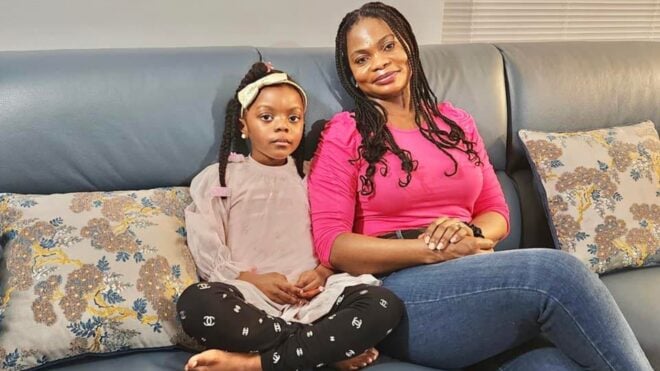
The pandemic has been immensely challenging for so many people. But it's hard to imagine a tougher profession during these times than being an ER doctor. Last April, one ER doctor, Dr. Lorna Breen, couldn't escape the heaviness of the countless deaths that were happening in her hospital and all over the globe. Then she battled COVID-19 herself. As a result, her mental health took a huge hit, and Lorna died by suicide.
Dr. Lorna Breen's story is utterly devastating. But that's especially true because her family, who is now advocating for better mental health support for clinicians, says it could've been avoided.
Her sister, Jennifer Feist, told Savannah Guthrie about how her sister's death has given her a new purpose. "That's what's driven me," she said of her new project. "And if we can help somebody else in the health care profession avoid an outcome like my sister had, this will have all been worth it."
The pressures on health care workers have been immense for the last year. It's almost unimaginable to most of us. However, Jennifer Feist feels that there's a huge stigma surrounding health care professionals seeking mental health care, which is a massive problem — especially during times like we're currently living through.
She and her husband have thrown their weight into creating the Dr. Lorna Breen Heroes Foundation in her sister's memory. The foundation serves an incredible purpose, which is helping to reduce the stigma of health care professionals seeking help for mental health issues. It also helps to fund research and programs aimed at reducing burnout. Now more than ever, those things are so needed.
Lorna's family told Today about how they first realized something was wrong last year. They said that she had reached out to them, asking for help after the surge of cases hit New York. Jennifer took her sister to the emergency room at UVA Health in Charlottesville, Virginia, where she stayed for 11 days. Lorna then moved in with the Feists before dying by suicide at their home.
Jennifer spoke about the harsh realities that she believes led to her sister's premature death. "What I know today is the same thing I knew, even before my sister died, which was that she got sick with COVID and it affected her brain," Jennifer said this week on Today. "The tragedy is she had enough of her faculties to know that if she raised her hand as a physician, and said, 'I can't think, I can't work, I need help,' it could have been devastating to her career."
She continued, pointing to how the pandemic pushed Lorna to an absolute breaking point. "We know now exactly the same thing I knew a year ago, which is that it was the combination of COVID and the culture in medicine that killed my sister," she said. Of course, Lorna is not that unlike so many other doctors who are struggling with their mental health.
According to an American College of Emergency Physicians and Morning Consult poll, more than 8 in 10 emergency room physicians reported feeling more stress during the pandemic. That is not shocking, to say the least. What is shocking is that nearly half said they were not comfortable seeking mental health treatment. More than 70% of those polled cited the stigma in their profession for receiving mental health care.
The numbers are staggering. But Jennifer isn't that surprised. "It's there and it's strong," she said. "It is a well-established premise in health care that you do not seek mental health care, you just don't."
The Feists have recently announced new initiatives on their platform that they hope will combat the stigma. They have also worked with Senator Tim Kaine of Virginia on legislation aimed at preventing suicide and burnout among health care professionals. The senator introduced the legislation last year, and again this month.
Jennifer says that her sister would be proud of the work she is doing. "I think she would love it," she said. "I think my sister was here for a reason and maybe this is it. We have made changes. We've heard from people who have changed the way they live because they heard what happened to my sister, and I think she would love it."
Note: If you or any of your loved ones are struggling with suicidal thoughts, you can always reach out to the National Suicide Prevention Lifeline by calling 1-800-273-8255. They are available 24/7 by phone or online chat.




